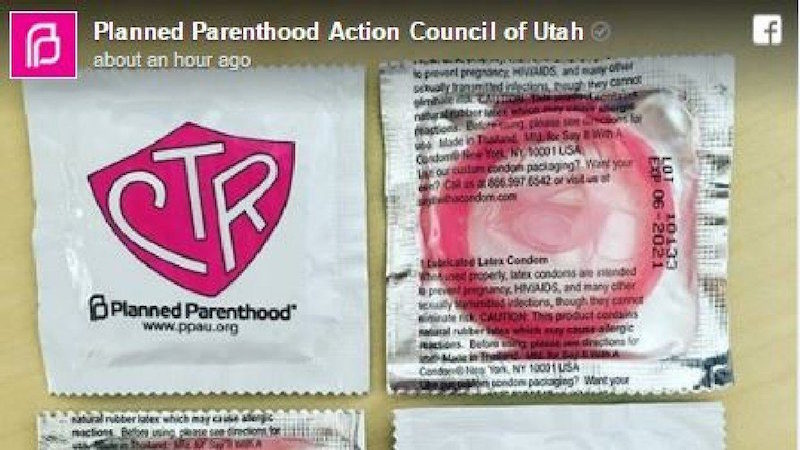I could see the bill passing, there are plenty of church broke politicians in Utah that will violate their own sincerely held values to fall in line with whatever the LDS Church wants:Mormon church backs bill that could prevent recording bishop interviews
The LDS Church is supporting a bill that could protect church leaders from being recorded without their knowledge or consent.
“Church representatives have spoken with legislators to express support for House Bill 330, which is intended to protect the confidentiality of sensitive private conversations, including those between ecclesiastical leaders and their members,” spokesman Eric Hawkins confirmed in an emailed statement Tuesday.
The statement came after the church on Monday had declined comment amid speculation that Utah’s predominant faith was behind the legislation.
Former state Sen. Steve Urquhart on Monday said a legislator told him The Church of Jesus Christ of Latter-day Saints had asked for a bill requiring consent from all parties to record conversations.
The LDS Church wants HB330 passed because of “recently released recordings regarding the church,” Urquhart told a Salt Lake Tribune reporter Monday evening.
Urquhart said the lawmaker wanted to remain anonymous to avoid repercussions.
According to bill’s sponsor, Rep. V. Lowry Snow, R-St. George, the measure was a priority for the Salt Lake Chamber, but he confirmed the Mormon church has contacted him about the legislation.
Chamber President Lane Beattie said the business community wanted to protect people who think they’re having a private conversation.
Snow said he heard from LDS Church representatives after he began working on the bill.
“They are interested in the legislation and wanted to know when it was going to be out, and what would it would entail,” Snow said.
As to why the church is interested in the bill, Snow said, “I could speculate that it has to do with maintaining confidentiality, but that’s my speculation.”
He said other members of the state’s religious community also have contacted him about the legislation.
House Majority Leader Brad Wilson, R-Kaysville, said he had not discussed the bill with anyone this session, until asked about it by The Tribune — but had heard that the Salt Lake Chamber was supporting it.
He said he isn’t surprised at talk that the LDS Church may be behind it “because some people think the church is behind everything up here.”
John Dehlin, of the “Mormon Stories” podcast, said he believes lobbyists with the LDS Church are encouraging lawmakers to vote for the bill.
“This will make it impossible to record Mormon bishops and stake president interviews, Mormon GAs [general authorities], etc. to hold them accountable for the things they say and do,” Dehlin wrote in a Facebook post Monday night.
Dehlin, who was excommunicated from the LDS Church for apostasy, said the bill is a “direct response” to his podcast, “Mormon Stories,” and requests for bishops and stake presidents to stop asking minors sexually explicit questions during private interviews.
A petition campaign is underway demanding a halt to the LDS Church’s practice of closed-door, one-on-one interviews by bishops with children — sometimes including inquiries about sexual matters — and had collected 14,442 signatures as of Tuesday.
Organizer Sam Young, a former Mormon bishop, has said the petition will be presented March 30 at the LDS Church’s downtown Salt Lake City headquarters.
Currently in Utah, it is legal for one person in a conversation to record it without the other party’s knowledge. The bill would make that illegal, and it would require that all parties consent to being recorded. Snow said the bill is about ”fairness,” and that people should get to decide whether they are recorded.
The bill provides for a number of exemptions. It still would be legal to record public officials or employees making statements related to their formal duty.
Other exemptions include instances where the person making the recording believed the communication was part of an ongoing pattern of harassment or abuse; was likely to be fraudulent, obscene or harassing in nature; or involved or conveyed threats of extortion, blackmail, bodily harm or injury.
But Dehlin said he is concerned that that wording in the bill won’t circulate widely enough.
“Even if there is some exception, when Utah gets known as a two-party consent state, I think it’s going to have a chilling effect on people feeling like it’s within their right to protect themselves,” he said. “The fine print isn’t going to get around.”
Sen. Todd Weiler, R-Woods Cross, whom Snow asked to sponsor the bill in the Senate, said he hadn’t been contacted by the LDS Church about this bill.
If the legislation passes, Utah would become the 13th two-party-consent state in the nation.
“I wrote a few Facebook posts this summer about Utah and the Mormon church being better off if the church walked through the front doors of the Capitol, instead of controlling outcomes by whispering instructions to legislative leadership,” Urquhart wrote to a Tribune reporter. “To my surprise, quite a few legislators told me they agreed.
Joel wrote: ↑October 14th, 2017, 5:57 pmStatement made by Utah Senator Madsen on the subject of SB296. Madsen observes that the church is endorsing a senate bill which would make discrimination illegal for businesses in Utah, while giving the church itself an exemption from those requirements. In the close of his comments he pulls back the curtain behind Utah politics by stating that even though he is against the bill, because the church supports it - he is compelled to support the bill.


